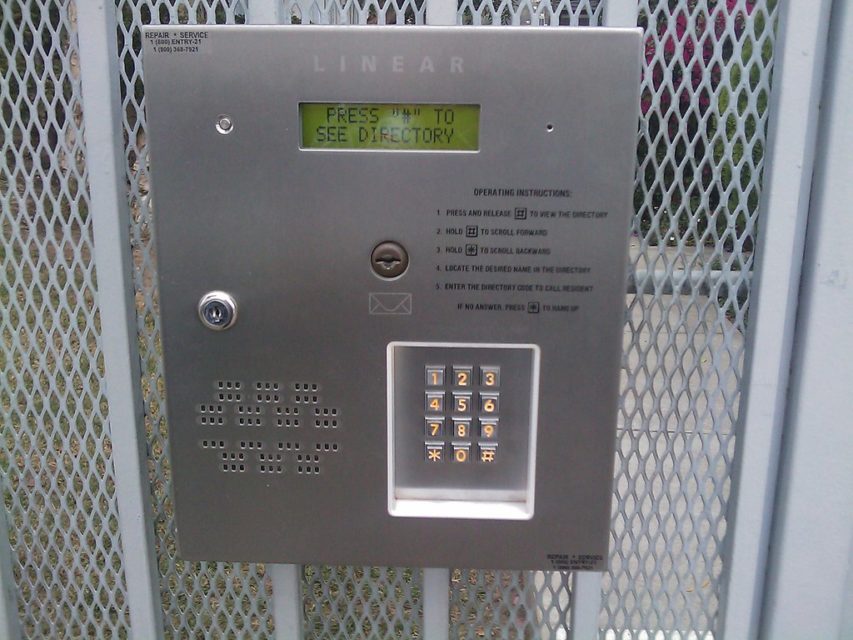Alistair Dabbs has a security tale of woe:

“Keypad Entry”by Victor Frost is licensed under CC BY-NC-SA 2.0
Access denied. Enter Access Code.That’s a good start. Just a few moments ago I was handed a card on which is written, in blue ballpoint, a newly compiled string of alphanumerics that is supposed to identify me as a unique user. Oh well, maybe I fumbled the buttons. Let’s try again.
Access denied. Enter Access Code.I am standing in the driving rain – this is London in the summer – in front of a large electronically operated vehicle barrier that keeps the riff-raff from getting anywhere near the car park and loading bay behind the building where I am to be working this week.
The vertical stainless steel keypad into which I am pushing my access code is weather-resistant. I am not. You’d think they could have installed the keypad at car-window level but no, it’s at lorry level. And it’s not on the driver’s side anyway, so anyone not rolling up in an unmodified US or continental import vehicle is forced to exit and walk over to the access terminal.
Access denied. Enter Access Code.As far as it is concerned, I am riff-raff. I look behind me to see a steel-grey car has pulled up behind mine. Steel-grey = bland, unimaginative, company car, must be management. As I trudge back towards the street entrance around the corner to ask the security desk for an alternative access code, remembering this time to express an explicit preference for one that actually provides access, I notice the driver in the grey car has started to harrumph.
Security systems like this exist to protect me and my possessions, whether physical or electronic. They keep out the nasties and foil the mischievous. They allow access to the honest and prevent it to the unauthorised.
They are a pain in the arse.
Security is essential, of course, but only for other people. Not me. I’m the nice guy here and this sodding keypad is stopping me from getting in.
But then security authentication is one of those functions whose philosophical concept is hampered by self-contradictory details of its own design. To pick a topical example, it is the right of European Union citizens to enjoy free movement between EU countries without being stopped by border controls. However, how can the border controls know whether you are an EU citizen or not unless they stop you to ask for your EU identification? So it’s only by presenting your passport or ID card that you can exercise your right not to have to present your passport or ID card.
The forces of law and order, from police to night club bouncers, face the same recursive logic. Why do they insist on frisking me? Why can’t they concentrate their stop and search efforts only on those who are carrying concealed weapons?



